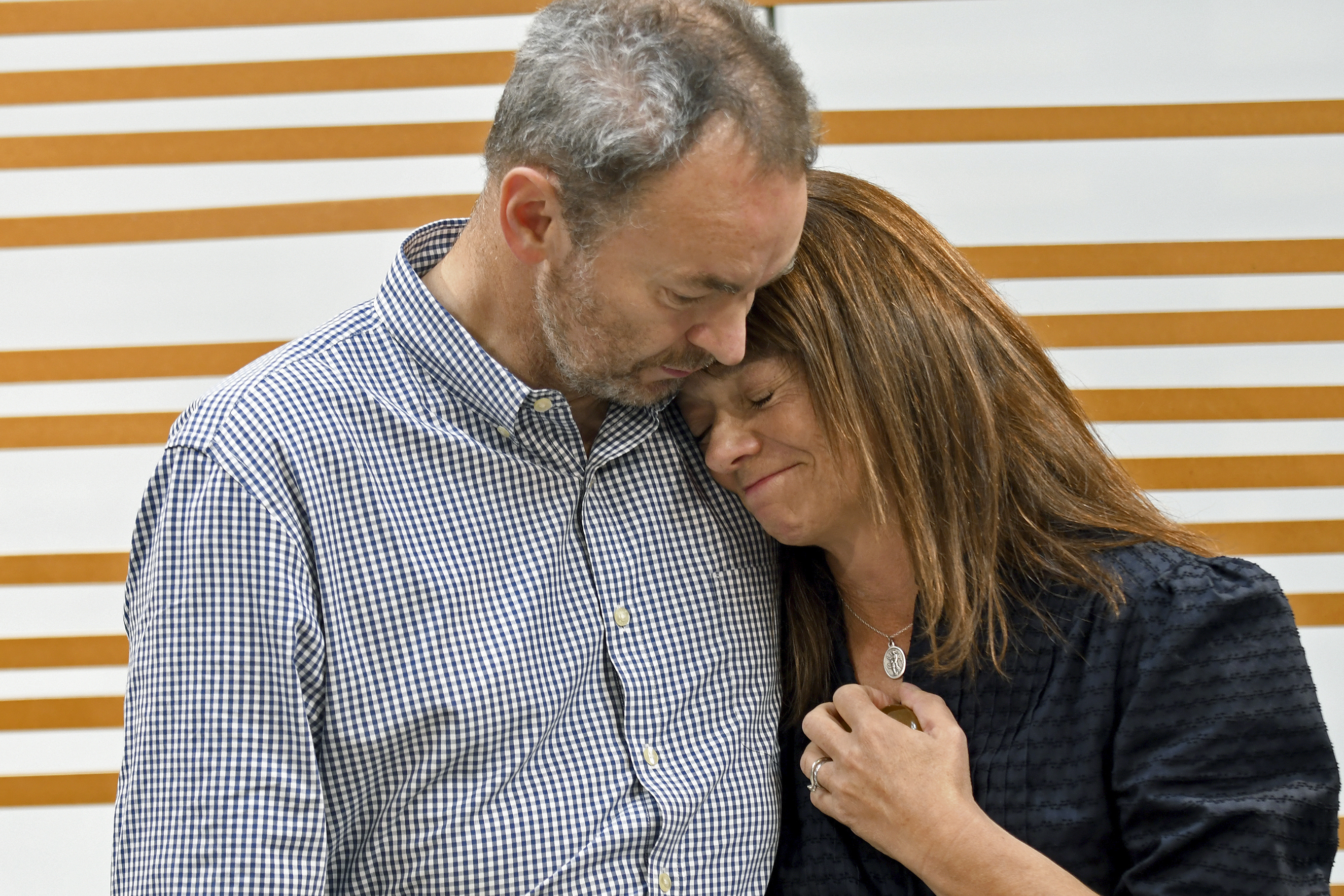Even though Dexter Morgan’s wrapping up his eight-season killing spree on Sunday night, don’t expect “Dexter” to simply and silently vanish like one of his seamlessly executed victims.
Television’s first show about a charming serial murderer – albeit one who slays according to a strict moral code – struck such an unexpected chord with viewers and Dexter will stand firmly among the apex of a generation of flawed, edgy TV antiheroes that includes Tony Soprano, Walter White, Don Draper, Nancy Botwin and Vic Mackey – and given his substantial body count, Dexter’s perhaps the most extreme of them all.
The compelling dichotomy of Dexter’s human and inhuman sides have audiences anticipating an appropriately blood-spattered finale with a looming question: will Dexter continue to travel on with his Dark Passenger beyond the series end, or will he finally face justice, karmic, poetic or otherwise, for his long string of homicides, however seemingly justified?
“I think some will be happy, some will be sad, some will be confused, and some will be vindicated,” suggests star Michael C. Hall, who recently gathered with the show’s cast and creative team to celebrate “Dexter’s” finale. “There will be a lot of responses, but I think the series ends in a way that reflects the story we've always been telling." But he adds the final episode will also "invite a certain degree of speculation.”
“Dexter” executive producer and showrunner Scott Buck, who’s written for the unorthodox series since its debut season in 2007, says the writing team followed their instincts on where to end Dexter’s journey.
“I think we end in what feels like the right place for Dexter the character, because ultimately the show was all about that one person,” says Buck. “People take the show very personally and have their own ideas on how it should end. It's so interesting when you read the blogs because some people want Dexter to live happily ever after and some people want Dexter to finally be punished in the way that a serial killer deserves.”
U.S. & World
The day's top national and international news.
“I'm really, really satisfied. I feel like it was a sort of a herky-jerky ride this year, but I really, really, really appreciate where we landed, “ adds series star Jennifer Carpenter, whose detective Debra Morgan became a fan favorite for her turbulent love life and penchant for prodigious profanity. “I needed for something to end so that something else could spark for me as an actress because I feel like I donated life and limb to her a little bit, and I needed something back. And the writers gave it to me in spades.”
"Dexter" became a signature series for Showtime, making it competitive with its cable rival HBO, and the role would prove to be a defining one in Hall’s career, earning him multiple Emmy nominations as well as a Golden Globe award. During the run of the series he’d also experience personal highs and lows, battling and beating cancer, and marrying and divorcing his co-star Carpenter. Through it all, Dexter Morgan became a character audience found themselves invested in, even as his kill rate accelerated – much to the surprise, pleasure and even a little discomfort of the creative team.
“It felt good in as much as I knew the show would only succeed if we managed to invite people to identify with, if not even root for, Dexter,” says Hall. “And I think going forward, I've been interested in challenging that affection and moving him in places that aren't as easily digestible or black and white.”
Co-star David Zayas, a former New York City police officer who played Miami police detective Angel Batista, says that Hall was the anchorman the cast rallied around: “He led by example. He came in prepared. He was there every day, and he came in with a level of professionalism that we all had to match.”
Dexter also met his matches each season, facing a variety of equally deadly and colorful adversaries, increasingly played by formidable actors including Jimmy Smits, Colin Hanks, Edward James Olmos, Ray Stevenson and, perhaps most notably, John Lithgow as “Trinity,” the killer who robs Dexter of a key tether to humanity.
“When I finally had the opportunity to become a part of it, I watched the whole series back-to-back, and fell in love with it,” says Yvonne Strahovski, who joined the series as Dexter’s love interest, serial poisoner Hannah Mckay in the seventh season. “I feel so blessed to have been able to finish out with everybody because I didn't expect to survive Season Seven. Not a lot of people survive the show when they get invited to be a part of it!”
“Dexter” has proven so popular with audiences that Showtime has come to see it as a potential franchise: there’s been much talk that the network is hoping for some sort of spinoff property. The cast and crew have demurred on specifics, and the network’s president of entertainment David Nevins says plans remain in the earliest stages of development. “I’m happy for the buzz, because I do think that 'Dexter' will live on in some fashion,” he reveals, “but it’s not clear exactly at all if it will be, and if it is, what it will be.”
Nevins says the show has already established a strong legacy. “It’s led to a wave of serial killer shows – that may be its more dubious legacy – but I feel like it was one of the seminal shows in bringing depth and richness and complication to what was formerly a bad guy character,” he says. “It has complicated character depth and you’re not quite sure what to feel about him, and that more than anything has I think broadened the palette of what you can do on television.”



